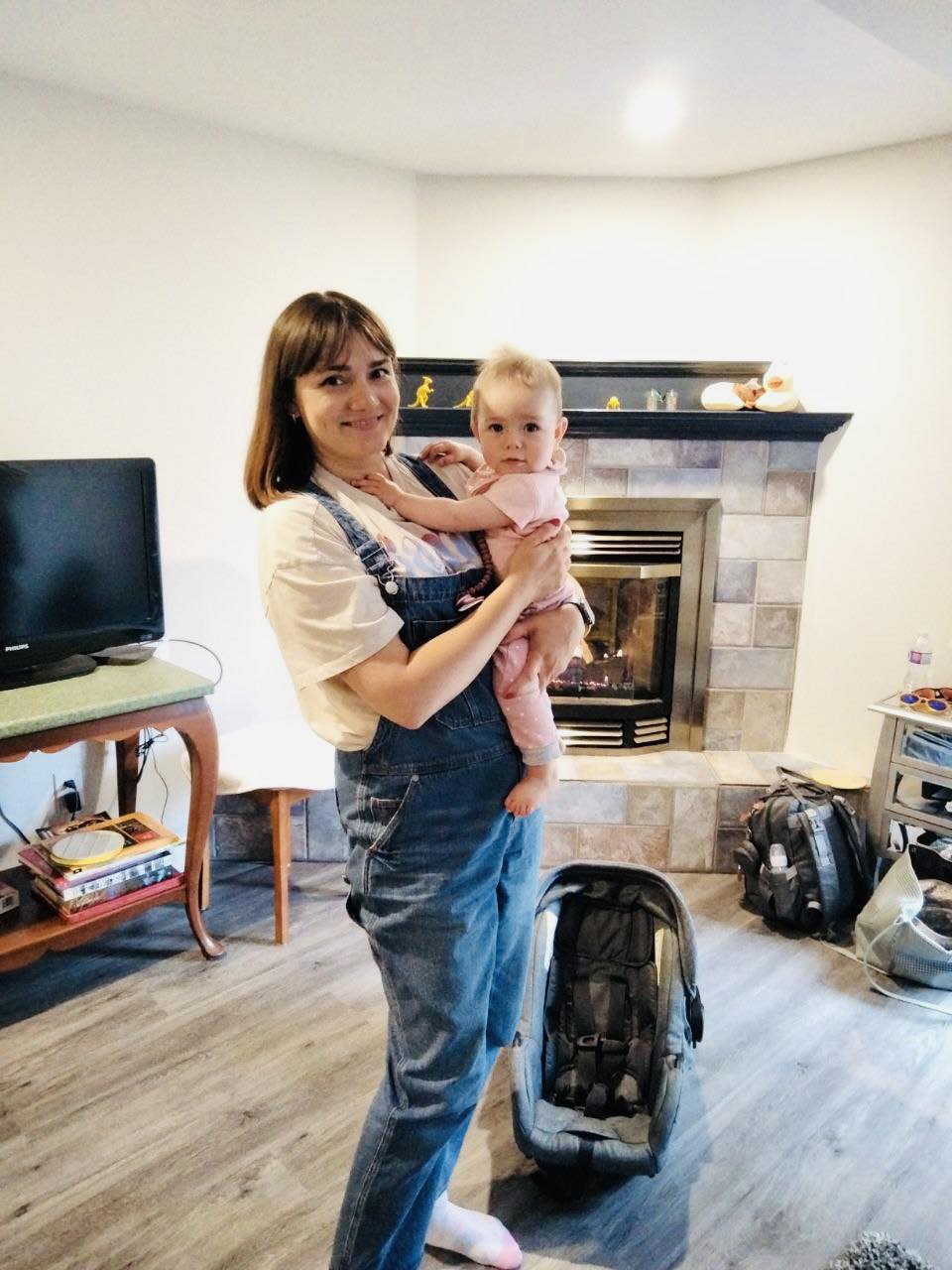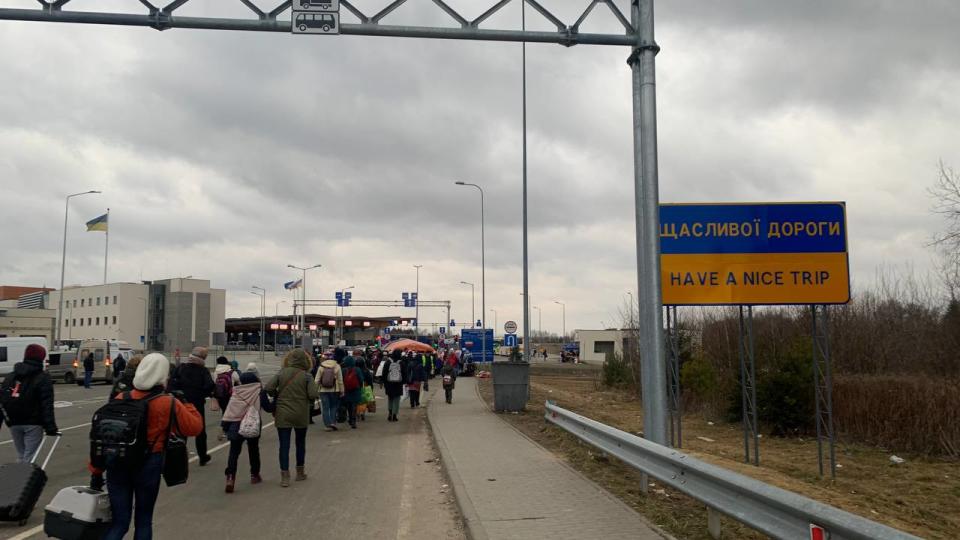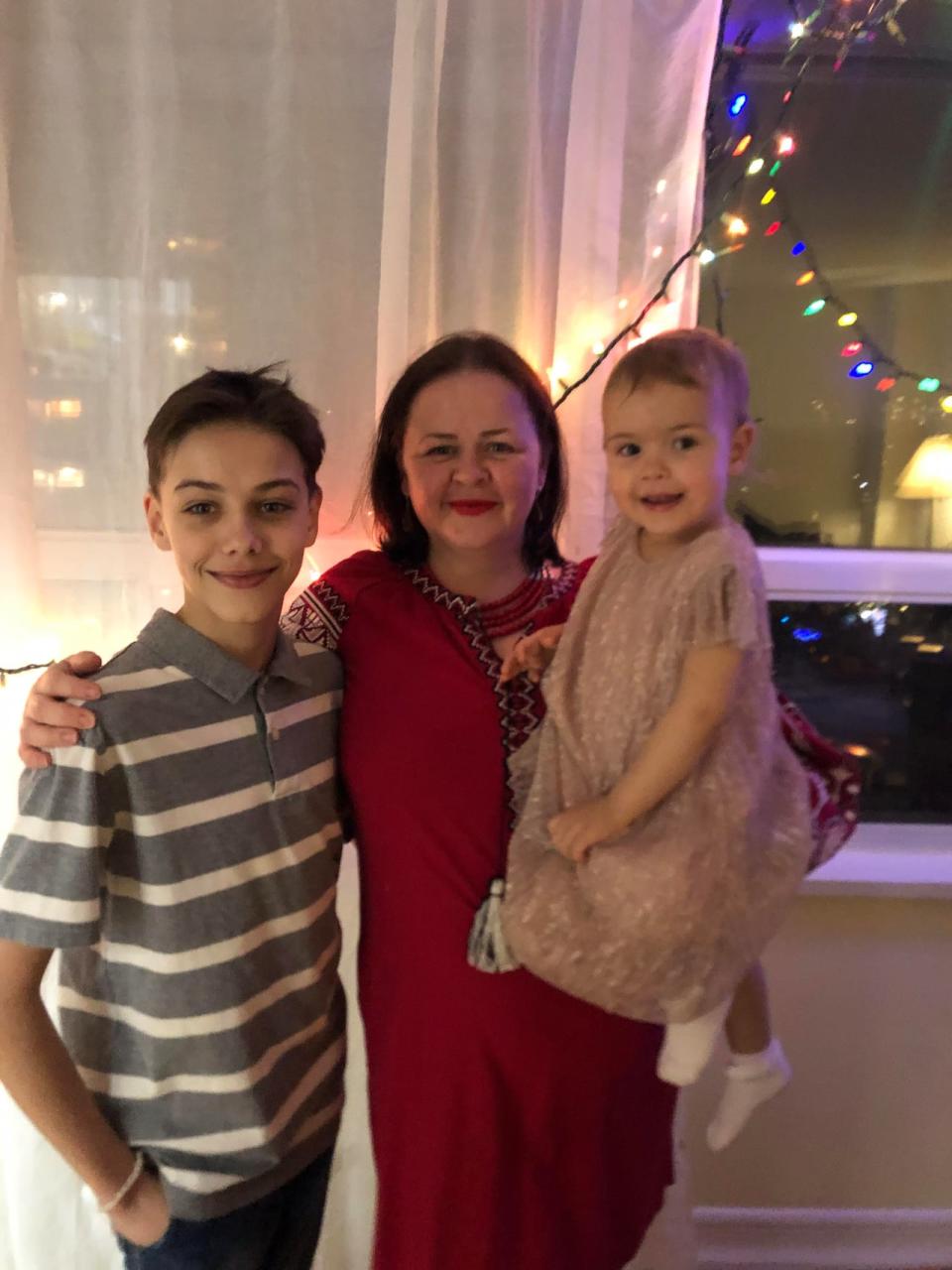An Ontario woman's husband went missing in Ukraine. She's asking Canadians not to forget the war

As a child, Oksana Orel dreamed of one day visiting Canada. But in February 2022, she woke up to a nightmare — explosions rocked Kyiv and nobody knew why.
Once it became clear that Russia was invading Ukraine, she and her husband planned to enlist and defend their country. Then, she found out she was pregnant.
After that, she said things became black and white — she needed to be somewhere her baby would be safe.
She gave birth to their daughter alone in Barrie, Ont. in October 2022. Her husband stayed with Ukraine's Territorial Defence Forces and was sent to fight in what has been called the war's bloodiest battle in Bakhmut.
But since January 2023, he's been missing, says Orel. CBC Toronto has agreed not to share more details about him because she is concerned he may be a Russian prisoner of war.
And while she is "so thankful" for the support she's received so far, as the full scale invasion reaches its second anniversary this Saturday, she doesn't want Canadians to forget about her home country.

After Oksana Orel found out she was pregnant, she said things became black and white: she needed to be somewhere her baby would be safe and decided to leave Ukraine. (Submitted by Oksana Orel)
"We're still fighting and dying for democracy. So your voice makes a change, we need help to finish off this madness and hell on the earth," she said, adding support for Ukraine and Ukrainians in Canada can come in many forms.
"Sometimes we don't need money, we need support, we need understanding. Sometimes we just need advice."
Orel is one of multiple Ukrainians living in Ontario who told CBC Toronto there is still a need for support from Canada both on the front lines and here at home. One key way people can show that support, they say, is by attending public events held in solidarity with their country.
Donations still needed, says one woman
Anna Heychuk was already living in Canada before the invasion. In 2014, when Russia annexed Crimea, she started a Facebook group called Ukrainian Moms in Toronto as a place for people to feel solidarity and discuss motherhood.
Since Russia invaded in February 2022, she says its membership has grown by thousands.
She said she understands people can get fatigued by hearing so much about the war, but unfortunately, it continues.
"I do understand that it's maybe not their personal war. But maybe they have their dearest friend, colleague or neighbour who is affected by this war and just ask them what they need," she says.

With more Ukrainians potentially set to come to Canada, Anna Heychuk said there's still a need for donations to help people raise families. (Submitted by Anna Heychuk)
Heychuk works with the organizations Ukrainian Canadian Social Services Toronto and Canadian Ukrainian Immigrant Aid Society Immigrant Services on an initiative called the leleka project, which means stork in Ukrainian, to help mothers displaced by the war navigate a new life in Canada.
She said even though it's been two years since the invasion, the need for donations of diapers, strollers and clothing, among other things, isn't slowing down.
As of Jan. 27, the federal government says 221,231 Ukrainians have arrived in Canada under the Canada-Ukraine authorization for emergency travel program. Nearly a million visas have been issued under the program, which expire at the end of March. As many as 90,000 visa holders are thinking of coming to Canada before then, pre-arrival surveys by Immigration Refugees and Citizenship Canada and Operation Ukraine Safe Haven suggest.
'We really need help'
When Russia's invasion began, Oleksandra Artiushchenko knew the war wouldn't be over quickly. She came to Canada with her two children because she wanted to find somewhere they could be safe for a long time — while the father of her children is still in the country, serving in the army.
"We don't think about us. We think only about children in this moment," she said.
Her children love living in Toronto, where her 11-year-old son has learned to play floor hockey and takes Spanish classes after school.
She's worried Canadians aren't hearing enough about the war these days.
"We have a war, we have tragedy and we really need help," she said. "We need help for our army."

Oleksandra Artiushchenko is worried Canadians aren't hearing enough about the war these days. (Submitted by Anna Heychuk)
Ukraine says it is running out ammunition and Canadian stockpiles have been drained by donations, but a major agreement to ramp up production in Canada hasn't been signed. Increasing production of the shells that both Canada and Ukraine need requires a federal investment of as much as $400 million in the factories where they're made, as CBC News has previously reported.
"There have been discussions. I've not yet signed a deal," Defence Minister Bill Blair said in a recent interview with CBC News.
"We're looking hard at making an investment in Canada to increase [munitions] production. The current ammunition situation is unacceptable in Ukraine. It's unacceptable for NATO. Unfortunately, it's something that we got to fix."
As the war continues, Orel is soon starting a new chapter as she prepares for her first working day in Canada after giving birth. But she still misses what she left behind.
"Travelling, it's a beautiful activity, but: home sweet home. A lot of us would like to return."


